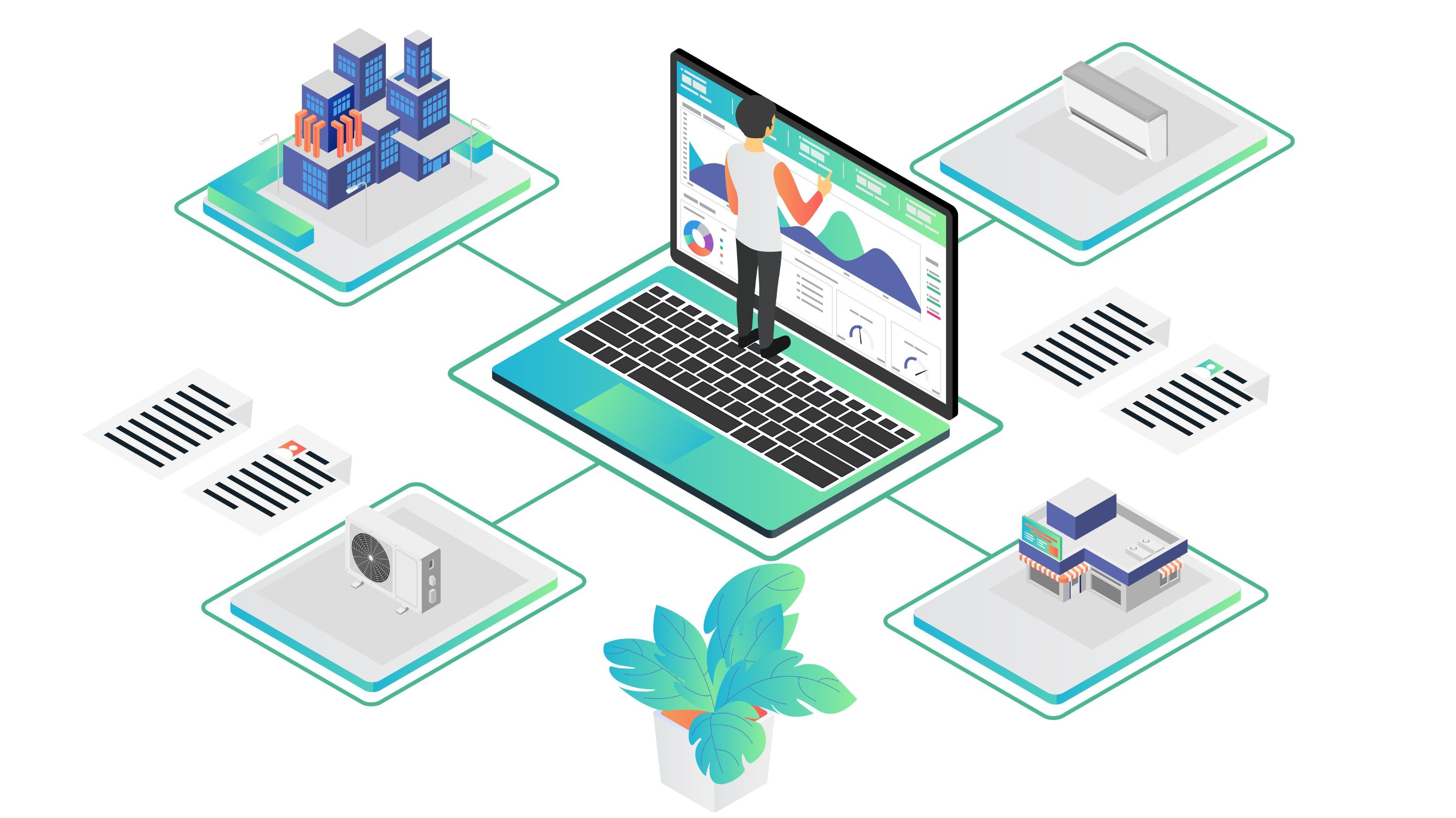A future of government run on data products
By Denodo
Denodo’s Richard Jones shares how data products can enable timely and accurate data integration and improve public sector service delivery.

Data products provide the foundation of AI-ready goverenance and cross-agency collaboration. Image: Canva
Public agencies across Asia are under growing pressure to modernise services, anticipate citizen needs, and enable responsible AI in real time.
This increasing expectation has given impetus to the evolution of the government’s role from managers - to stewards of data as a strategic asset to drive digital transformation and improve citizen services, says Richard Jones, Vice President and General Manager of APAC at Denodo.
“Rather than treating data as something to simply store, we need to start viewing it as a dynamic asset - ready to serve citizens, support decisions, and drive innovation.”
The problem, however, is the hidden technical debt challenge public agencies face when prioritising short-term gains over long-term quality in technology development and maintenance.
Jones believes this challenge has come to the fore in service delivery today where the rigidity of traditional data management results in inefficient and costly processes centred on moving, cleansing, duplicating, and replicating data.
The answer, according to Jones, lies in a new paradigm – data products.
“Citizen digital services need real-time data, and they need to be faster and more agile. Data products are how we operationalise trust, speed, and transparency in public services.
“Whether you're building a chatbot for citizen services or powering AI-driven decision support, Denodo makes it possible to innovate responsibly, with transparency, lineage, and full control over how data is accessed and used.”
To subscribe to the GovInsider bulletin, click here.
How Denodo powers data-driven public innovation
Jones stresses that a data product is not just a dataset, but a “reusable, governed, and domain-specific asset that serves a clear purpose for a defined user group.”
According to him, a data product can take on many forms, depending on a given use case or business need.
He adds that data products should encapsulate the data, its logic, metadata, access policies, and usage patterns in a way that makes it easy to discover, trust, and consume.
Unlike traditional data systems, Denodo’s data products are modular, governed, and interoperable by design – ready to power everything from AI-enabled citizen support to cross-border healthcare dashboards.
These capabilities stem from Denodo’s philosophy of data virtualisation. This core technology allows disparate data sources – across cloud, on-premises, and legacy systems – to be unified into a single, governed data layer.
“Denodo facilitates the creation of data products by enabling agencies to model, publish, and govern data assets as services. This approach streamlines decision-making by making trusted data instantly available where it’s needed most.”
Real-world value: Data products ready for reuse
Jones shares the use case of a public healthcare agency in Australia where Denodo bridged the gap between the digital and clinical worlds.
Front-line staff and clinicians in the agency were unable to derive insights due to data in multiple sources and the risks of unauthorised access to sensitive data, including resource and load management across hospitals.
Denodo provided the agency with a single view of patient data through its unified healthcare data access layer, empowering the agency’s frontline staff and clinicians to make data-driven decisions in real-time and improve patient outcomes.
“This resulted in a notable improvement in Priority 1 ambulance response times as well as real-time data access via dashboards, improving hospital management and patient care,” Jones says.
Governance and compliance for public trust
Jones reaffirms that agencies can build scalable data products that are deployable across diverse situations by tapping into Denodo’s logical data management platform.
Moreover, logical data management is highly relevant for public agencies to devise solutions that can withstand both their growing needs as well as disruptions in the surrounding technological and regulatory landscape.

“Artificial intelligence (AI) and machine learning (ML) are transforming the way governments operate – from fraud detection to predictive public health and smarter citizen engagement.
“But for these technologies to work, they need access to reliable, real-time, and well-governed data.”
He explains that the connection of disparate sources without replication in real time enables agencies to keep sensitive information governed under strict access controls, in compliance with personal data protection laws across Asia such as Singapore’s PDPA, Indonesia’s PDP Law, and Thailand’s PDPA.
Data security and governance are built into the core of Denodo’s platform with role- and attribute-based access, data masking, encryption, and audit trails.
These features help agencies comply with regional mandates around consent, purpose limitation, and data residency.
“By embedding governance and security directly into the data delivery layer, we empower governments to securely share data products across departments, improve transparency, and respond quickly to privacy requirements, all while staying aligned with national regulations,” Jones adds.
GenAI enablement through secure data access
Jones highlights Denodo’s generative AI (GenAI) capabilities and AI SDK (software development kit) that enables government agencies to go a step further to connect large language models (LLMs) and AI assistants directly to curated data products via Retrieval-Augmented Generation (RAG).
“By creating virtualised, policy-compliant data products, we give AI and ML systems secure, governed access to the right data without the need for duplication or complex data pipelines.”
Futureproofing public sector innovation
Looking ahead, Jones spotlights a key trend in data consumption that is set to reshape public sector service delivery across Asia – the shift from siloed data systems toward interoperable, domain-driven data products.
He shares a Gartner report which estimated that 90 per cent of current analytics content consumers will become content creators enabled by AI by 2025.
“This trend is equally relevant in government, where the ability to publish trusted, reusable data products can accelerate digital service delivery, improve transparency, and reduce redundancy,” he says.
Successfully navigating legacy and modernisation, he adds, is done by progressively aligning core data components with evolving business needs.
“Implementing a new data management platform doesn’t have to mean ripping and replacing what already works.”

His advice is for agencies to adopt a phased, low-disruption approach that builds value incrementally, to demonstrate quick wins without major infrastructure changes.
He cites compliance reporting and citizen service analytics as excellent high-priority use cases for organisations to trial data virtualisation instead of movement.
In Jones’ vision of future service delivery, public agencies can maximise long-term value by turning siloed data into trusted, reusable assets that fuel multiple initiatives.
The key to unlocking fast, adaptive, and citizen-centric services is in the blueprints of data products – designed with governance, discoverability, and reusability.
“Denodo is proud to partner with agencies, not just with technology, but with a practical, low-disruption approach to building trusted, reusable data products.
“If there’s one takeaway, it’s this: you don’t need to rip and replace systems to move forward. With a logical data management approach, governments can unlock value from the data they already have – safely, quickly, and at scale.”
Trusted, reusable data products aren’t just a technical fix - they’re the foundation for AI-ready governance and cross-agency collaboration.
The future of government is data-driven – and the time to build that foundation is now.
Richard Jones will be sharing the welcome remarks at the upcoming Public Sector Data Day on July 24. Click on the image below to register for the event to learn about how the next-generation of data management will enable public agencies in Singapore to meet its digital goals of creating a thriving digital future.
-1750904838866-1751533122417.jpg)